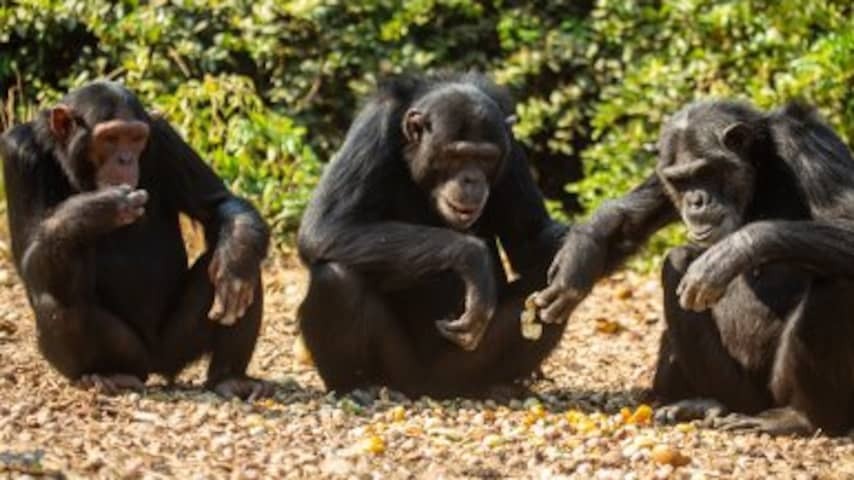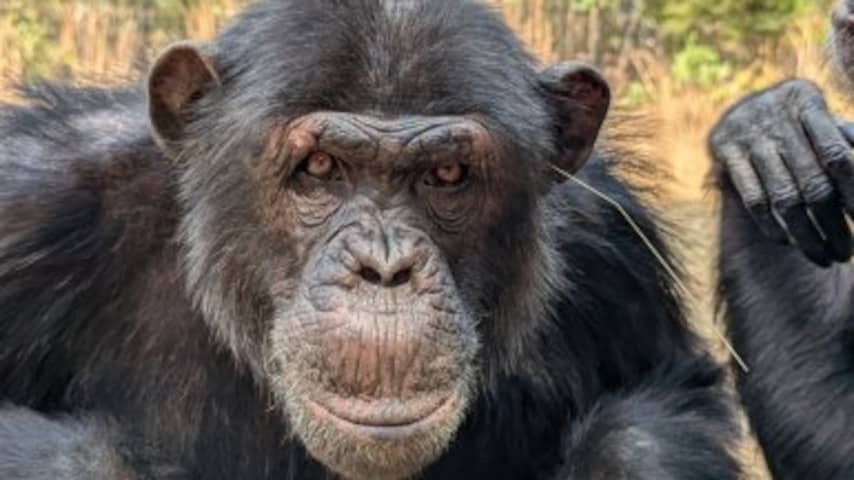
Chimpanzees, like humans, seem to adopt seemingly useless behavior from each other. Researchers at Utrecht University observed that the apes were sticking blades of grass in their ear or behind without any clear reason. Fellow chimpanzees copied that behavior, even though it was not useful.
Chimpanzees in a sanctuary in Zambia were dangling a blade of grass from their ear or behind. It was unclear why they were doing that, but other chimpanzees in the group adopted the behavior. Meanwhile, there is a new generation in the sanctuary that also does it. Therefore, according to the researchers, there is a cultural tradition.
It was long unclear why the monkeys were sticking blades of grass in their ears and behind. The researchers had no indication that the chimpanzees were suffering from their ear or behind and were using the blades against itching.
The monkeys seem to have adopted the behavior with unconscious help from their caretakers. They reported sometimes using a blade of grass or match to clean their ear. The chimpanzees seem to have come up with the idea of sticking blades of grass in their butt all by themselves.
The researchers think that chimpanzees in captivity simply have more time for useless behavior when they see others doing it. “They have to be less careful and spend less time finding food,” says principal investigator Edwin van Leeuwen.
‘Fashion trend’ not necessary for survival
The scientists compare the blades of grass in the ears and butt to fashion trends in humans. ‘Useless’ in this case refers to the fact that the behavior is not necessary for survival. They therefore also speak of “non-essential behavior of conspecifics” in their research.
The behavior seems strange and useless, but according to the researchers it can say something about the evolutionary origin of culture in humans. “It could also have a social function. By adopting the behavior of another, you show that you see that other person and perhaps like them. This could lead to better social bonding and the feeling of belonging to a group, just like with humans,” says Van Leeuwen.
